01 Postgraduate Diploma in Nutritional Counselling & Diet Therapy(PDNCDT) (One-year course)

A well-balanced diet is a determinant factor in keeping us in good health. What we choose to eat, and what we choose not to eat, are very crucial in resisting many leading chronic illnesses and diseases. Due to the unbalanced diet and food adulterations, life-style diseases and dietary diseases are ever increasing in India in the last two decades. Lifestyle diseases are the biggest killers in India today. Over 61 percent of all deaths in India is attributed to lifestyle or non-communicable diseases (NCDs). The main dietary disease are obesity, diabetes, cardiovascular disease, several forms of cancer, food allergies, Hormonal disorders, osteoporosis and dental diseases.(https://www.cseindia.org/lifestyle-diseases-the-biggest-killer-in-india-today8228)
Kerala takes pride over the fact that its health status was almost at par with that of developed economies and boasted that its social development indicators were comparable to developed countries. But an alarming increase in cases of killer ailments like cancer, kidney and liver diseases is threatening to put its reputation in jeopardy. About 2, 50,000 people in the state undergo cancer treatment with the addition of at least 42,000 every year, while liver and kidney transplants are becoming common in super specialty hospitals. Rising affluence, changes in lifestyle, new junk food habits, and pesticide residues in food products, obesity and rising incidence of diabetes have all contributed in varying degrees to the health crisis (The economic Times, April 23, 2016). The people of Kerala have consumed allopathy medicines worth Rs.8000 crores in 2017-2018 (Mathrubhumi News Paper, February 13, 2019) is an eye-opener.
The recent scientific research demonstrated that food makes enormous influence on the mental health of persons. Based on this new discoveries and research, we want to integrate food therapy into the mental health interventions in India. We want to develop a new model of mental health intervention inspired by these recent researches in the field of modern nutritional science, especially by integrating the wisdom of Indian Ayurveda system of food therapy, yoga and physiotherapy into mental health interventions.
It is in this context, Institute plans to start a Postgraduate Diploma in Nutritional Counselling & Diet Therapy. Postgraduate Diploma in Nutritional Counselling & Food Therapy (PDNCDT) enables the participants to become fully qualified Nutritional Counsellors and Diet Therapists. It will equip them with a comprehensive understanding of the components of food, their role in human biochemistry and physiology, the importance of dietary and environmental factors on human health, as well as the biochemical and physiological imbalances that can cause health problems. This course will qualify them to become an expert in food and nutrition so that they will be able to help individuals, groups, families, organizations and population achieve their food and nutrition-related goals through assessment, counselling, management, programming and advocacy with high professionalism.
02 Food Literacy and Nutritional Counselling in Schools, Colleges, and Other Educational Institutions

Healthy citizens are the real wealth of any country. The pandemic Covid-19 recently demonstrated without any doubt that the overall development of any country is very much related to the health of the citizens, especially the young people. The survival, sustenance, and progress of a nation is marked by the quality of its youth. The young people, particularly the students, are the foundation of a nation building; and the strength of its foundation is the strength of the youth in their mental and physical make-ups. “Children are like buds in a garden and should be carefully and lovingly nurtured, as they are the future of the nation and the citizens of tomorrow,' said Jawaharlal Nehru, the first Prime Minister of India. Hence, youth empowerment is a decisive factor for national development. They need to be empowered cognitively, emotionally and physically; with adequate knowledge, appropriate skills, and apposite experiences. Educational institutions being the arena of youth enhancement and empowerment, we give top priority to the interventions to be launched in Schools/Colleges/ Educational Institutions.
Our institute aims to enhance the potentials of young Indians through inculcating appropriate dietary behaviour and food habits in them. This is done through promoting dietary education and food literacy coupled with Nutrition counselling in Schools and Colleges. Consuming well-balanced nutritious food not only contribute to the optimal brain health but also positively supports and even improves our cognitive function. Food, not only affect the body but also the mind. Any shift in the food habits will reflect in the performance efficiency in the people, and consequently, of the nation. There are clear indications in society that the Mental health condition of adolescents and youth are deteriorating in the last few decades due to the negative radical shift in their food habits.
The effect of food on health start from prenatal stage. It is a fact beyond astonishment that maternal diet has a big effect on the behaviour of the offspring. Poor prenatal diet was considered one of the reason for increasing ADHD symptoms and conduct problems in children. Increased use of Junk food among adolescents and youth have resulted in the radical increase of dietary diseases and contributed to the increase of mental health issues among adolescents and young people. Such an alarming situation calls for effective therapeutic solutions.
The prime method that Institute use to tackle this alarming situation is the education. Food Literacy and Nutritional/Dietary Counselling that institute wants to introduce in the Schools, Colleges and other Educational Institutions are deeply rooted in the wisdom of modern Nutritional Science in combination with ancient wisdom of Indian Ayurveda system. The food education and dietary/nutritional counselling and guidance that Institute will introduce for Adolescents and Youth are intended to help them to assume healthy lifestyle and healthy food habits and thus to improve their psychosomatic well-being. For this purpose, Institute plans to organize ‘EAT Q’ (Eat Quotient) seminars and workshops in the Schools/Colleges/other Educational Institutions.
03 Biodiversity Info Park
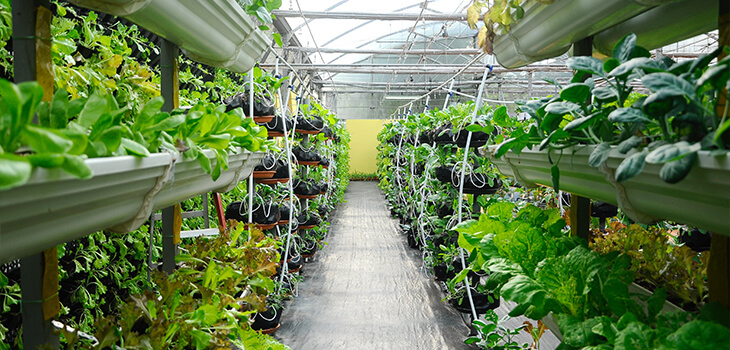
Biodiversity is the variability among living organisms from all sources, including terrestrial, marine, and other aquatic ecosystems and the ecological complexes of which they are part; this includes diversity within species, between species, and of ecosystems. Biodiversity forms the foundation of the vast array of ecosystem services that critically contribute to human well-being. Biodiversity protection is very important for economic wellbeing of a Nation.
India is a Mega -Bio Diversity Nation. It is ranked ninth in the world in terms of higher plant species richness. It contains over 7 per cent of the world’s biodiversity on 2.5 per cent of the Earth’s surface. This diversity can be attributed to the vast variety of landforms and climates resulting in habitats ranging from tropical to temperate, and from alpine to desert. The number of plant species in India is estimated to be over 45,523 representing about 11.8 per cent of the world’s flora. These include over 17,500 flowering plants of which 4,950 species are endemic to the country.
A rescue plan is needed for biodiversity conservation of fruits, vegetables, herbal/medicinal plants in Kerala. In India, we have more than a thousand vegetables, but many of them are forgotten. It is a precious heritage to save. A much greater diversity of vegetables exists in traditional food systems, but many of these crops are poorly integrated in current markets and diets. Many traditional vegetables are known to have higher nutritional value than their commercial counterparts, and are well-adapted to local conditions, exhibiting resistance to drought, pests, diseases and marginal soil conditions.
We should place increasing efforts on promoting these so-called 'forgotten foods', because of their value and potential in bringing nutrition and income benefits to consumers and producers, as well as in strengthening local culinary traditions. This could be the beginning of a great transformation towards more diverse, vegetable-rich food systems around the world. Many fruit and vegetable species in food production systems contributing essential nutrients to human diets are under threat from land use, climate change, and other factors. Better documentation and mapping of genetic variation in fruit and vegetable traits, especially traits related to nutritional quality, would greatly enhance development of varieties suited for specific locales and purposes.
Our institute plans this Biodiversity conservation programme through community based natural Resource management and through women empowerment in agricultural sector. Such a biodiversity conservation is a heritage to save for the good of humanity.
Since the beginning of human history, people have used the healing properties of herbs to promote and maintain good health and to alleviate sickness or pain. Today's renaissance of interest in herbal products reflects a deep desire to return to a more gentle, natural path to wellness. The goal in creating the herbal Medicine movement was to establish within the community an understanding that herbal medicine is a foundational part of being a healthy human being and having a healthy family. We should bring back herbal medicine culture to our kitchen. Indeed, a growing awareness within our community about the usefulness and necessity of herbal medicine within grassroots, everyday approach to taking care of ourselves. Conservation and preservation of herbal medicines for the benefit of humanity and a digital data Centre for herbal medicine using the wisdom of village herbalist and other expert persons in this regard.
In response to the rising demand for fruits and vegetables, herbal and medicinal plants, our institute plans to start a Bio-diversity Info Park in order to distribute seeds of organic vegetables, fruit tree plants and herbal & medicinal plants to those who are interested to cultivate them. Our Institute will train farmers, especially women and youth, on organic certification and modern agriculture methods of growing trees and plants. This project integrates solutions to socio-economic and environmental challenges, and will increase the income of households from fruit sales, benefiting many people, diversify the livelihoods and empower women and youth; prevent soil erosion and sequester carbon; develop technical skills of women and youth in maintaining and replenishing the organic nurseries; and diversify household diets with fruit consumption.
Humanity's future depends on the diversity of the species living on our planet, as they provide present and future generations with a food source and a healthy environment. Ecosystems worldwide are deteriorating as a result of intensive farming, climate change, pollution and other factors, putting biodiversity at risk. It has been estimated that 37% all living species may vanish in the next century due to climate change. There are an estimated 8.7 million different living species on earth, of which 300,000 are plants. Many of them may vanish due to climate changes, human activities or due to natural disasters before we can understand their importance. Hence, it is important to not only know about biodiversity and also to take action to conserve them for our future generation. Here comes the role of biodiversity seed banks. A biodiversity seed bank is a type of gene bank where seeds of different crops and rare plant species are stored for future use.
In our Biodiversity Info park project, Institute is planning to organize a Biodiversity Seed Bank (BDSB), where various indigenous seed varieties are conserved and distributed to Farmers freely. It will provide farmers with free and easy access to traditional seeds of fruits, vegetables and herbal/medicinal plants. It not only reduces farmers’ dependence on the seed companies but also help to conserve the agro- biodiversity of their respective villages. In fact, seed banks safeguard tomorrow's biodiversity.
Traditionally, Women play active roles in the day-to-day operations of Biodiversity seed banks, as custodians and caretakers of seeds. The women staff of the Biodiversity Info Park will be trained for seed selection, storage, record keeping and other aspects of seed bank management. We give special attention to the collection of seeds of many vegetables, fruits and herbal plants, which are at the point of extinction in India, and many of them have a high nutritional and medicinal value.
An operating seed bank can help communities to build resilience to the extinction of plants through the maintenance of biodiversity. Not only do these banks help to continue the existence of samples of plant species that may soon go extinct and maintain biodiversity in the face of catastrophe, but also catalogue the agricultural evolution of the region of which they are located. We want our Biodiversity seed bank to undergo certification processes by the Government authority responsible for seed certification. Not only seed banks do guarantee the food security of a country, but the resilience of small farming communities. Thus the Biodiversity seed banks are very important from social perspective.
By preserving biodiversity, we can make farming systems more stable and sustainable, which would help farmers to lead a stable life and reduce Farmers’ suicides due to income loss and natural disasters. We can also increase the income for farmers by diversifying their produce, improve human nutrition and protect the ecosystem.
Our aim is to establish a Biodiversity Info Park, including herbal/ medicinal plants. It includes an Agricultural Nursery and Biodiversity Seed Banks (BDSB) through which the ordinary farmers may get seeds and plants of fruits, vegetables and herbal/medicinal plants in reduced price. It really benefits small-scale farmers living in the borderline of poverty.
04 Public awareness campaigns on Food Adulteration to Fishermen, Farmers and Merchants, proprietors and employees of Hotel and restaurants.
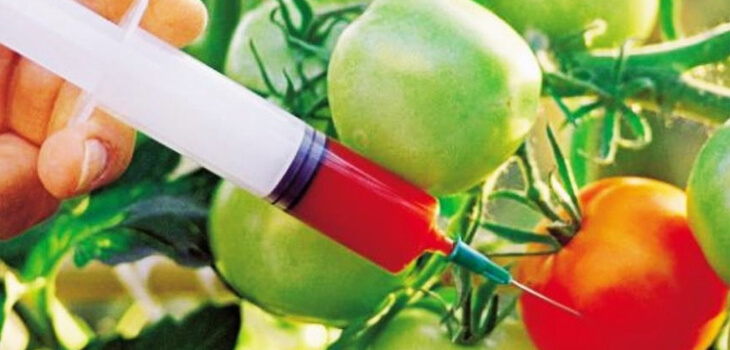
Food adulteration is one of the serious challenges in the Indian society. It is a serious menace to the overall health of our citizens. In every product, that we use daily, there is adulteration. Starting from our daily groceries, it moves on even to our life saving medicines. Adulterated food is dangerous because it may be toxic and can affect health and it could deprive nutrients essential for proper growth and development of a human being. The worst part is some adulterated food even causes cancer, the most life threatening disease.
The growth rate of Cancer Kerala ever increasing mainly due to the consumption of poisonous foods. At present, it is very difficult to get healthy food in restaurants and hotels. Often we get the food with full of conservatives and food without observing the regulations of food safety measures. Food cooked and packed in unhealthy circumstances are daily practice in our society. Therefore, a conscientisation on Food Ethics is very important for safeguarding the health of our citizens. We educate them to implement food safety standards promulgated by Federal/state Governments in restaurants and hotels.
In order to prevent the food adulteration, which is great menace to health of the citizens, public conscientisation campaigns are of utmost importance. To attain this aim, our institute is planning to conscientise Farmers, Fishermen, Merchants, proprietors and employees of catering industry.
The prime aim is to conscientize them to provide healthy food to citizens, observing the regulations of food safety measures. Institute wants to offer necessary guidance and counselling to them to implement food safety standards promulgated by Federal/state Governments into daily practice. It also plans to organize anti-food adulteration awareness campaigns using popular art and literature and other means of social communications to uproot this evil from the society.
05 A Digital Platform for Farmers
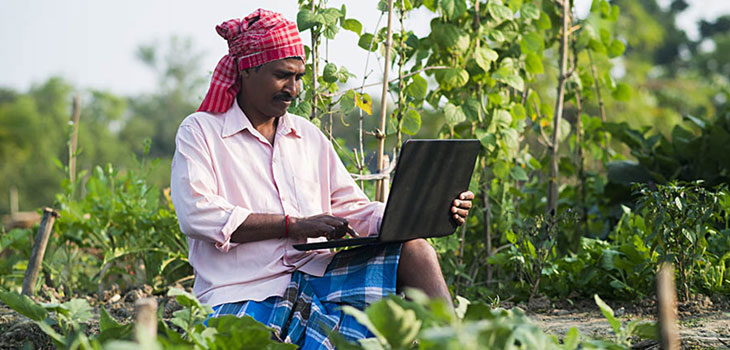
One of the most important problems facing farmers in India today is about marketing. Agricultural marketing still continues to be in a bad shape in rural India. In the absence of sound marketing facilities, the farmers have to depend upon local traders and intermediaries for the disposal of their farm produce, which is sold at throw-away price. These intermediaries do not provide a reasonable price for their crops, and hence farmers are bound to either sell crops at a lower price or just throw at the roads.
Our institute want to develop a virtual agricultural product selling platform for the wellbeing of the farmers. The main Objective of this Digital Platform for farmers is to help farmers to identify the best buyers for their produce and thus to Enable public to buy products directly from Farmers. In this system, we want to connect a farmer and a buyer without mediators and thus save the farmers from exploitation of intermediary.
The concept is that we will develop a digital virtual market place for farmers to showcase their products along with available quantity and expected price based on various volumes.
This is done through the following user-friendly steps since it is to be accessible to all farmers
- Every farmer has to register in this market place with a valid id proof.
- Every farmer can associate with a resource from their local area with enough knowledge to operate this virtual market place
- Farmers need to upload their products to virtual market place along with images, specifications, and price based on volumes, duration of availability and delivery options.
- When a buyer come across the product listing and post an enquiry, it will land in farmer’s phone.
- The deal can be fixed and product can be delivered as per terms agreed mutually
- The deal will be between farmer and the buyer no others will involve in it.
This Digital platform provides also necessary information to farmers about market demand of their produce, market prices etc. to allow them to make well informed decisions and fetch competitive prices in the markets.
06 National Conference on ‘Integral Ecology’ under the auspices of ‘Pope Francis’ Chair for Integral Ecology’.
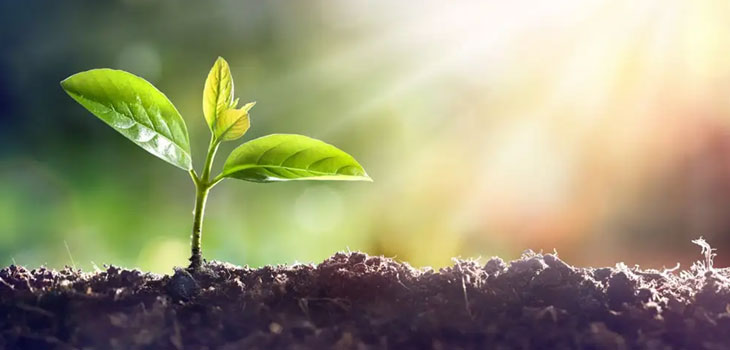
Through the encyclical Laudato Si': On Care for Our Common Home, Pope Francis urges all of us to view both the ecological and the human crises through an integral approach, as a way for us all to work together to protect the earth, our common home. The ideals of ‘Integral Ecology’ proposed by Pope Francis is highly relevant for all of us who are concerned with making our planet healthy, just, green, and livable.
Our institute will organize a National Seminar on Integral Ecology in the context of India with regard to this specific vision of Pope Francis. The main aim of it, is to inculcate all people, especially to the younger generation a sensitivity to ecological issues and thus to help them to lead an eco-friendly lifestyle respecting the integrity of biosphere.
07 Kisan Line : a Candle of Hope for Farmers in India
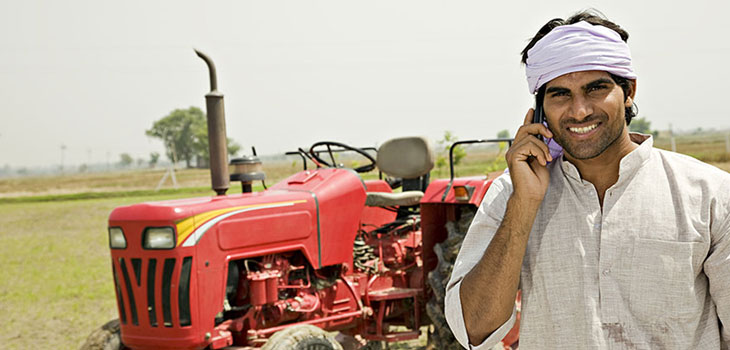
‘Kisan line’ is a toll-free helpline that brings a candle of hope for millions of farmers across India. It is a 24 hours x 365days, free, emergency phone service for farmers in need of assistance. We not only respond to the emergency needs of farmers but also work for their long-term welfare.
Institute of Food Agricultural Ethics (IFAE) in Thamarassery, Kozhikode, Kerala, India is the parental organization for setting up, managing and monitoring the Kisanline service all over the country. In India, farmers are vulnerable to severe exploitations like the other vulnerable categories of the society such as children and women. It is at this complex socio-cultural juncture, we start a ‘Kisanline’ to protect the farmers from rampant exploitation that they experience all over India.
08 Community based Zero Waste initiative

The industrial revolution has brought about new technologies with immense power. Due to the unplanned management of these technological developments and its concrete interventions have induced undesirable effects on biosphere and consequently become source of pollutions, greenhouse effect, global warming and soil erosion. Moreover, the global climatic change have caused to the insurgence of many infectious virus diseases which hitherto is not aggressive to the human persons. Therefore, the protection of environment is of uttermost importance in order to assure human survival and a better quality of life on earth. The more we exploit and degrade our environment, the more ecological imbalance we create; ultimately putting the very human existence.
With rapid population growth, especially in low-income and middle-income countries, like India, the generation of waste is increasing at an unprecedented rate. With the increasing urbanization, waste management is a major issue that our governments face daily. The overproduction of waste has been causing negative impacts on our environment. This is one of the leading causes for the environment pollution in India. Today, due to the inadequate treatment of waste causes higher number of infectious diseases in our country. Take into account the seriousness of the situation that we face today in this regard, our institute want to introduce a ‘community based Zero Waste initiative’.
‘Community based Zero Waste initiative’ is the awareness and training programme in order to inspire, encourage and support the population and businesspeople to reduce waste at the source with the help of community initiatives and efforts. By living without waste, we want to go beyond the recycling concept. It is based on five principles that our institute proceed with this initiative: 1. Refuse (reject what we don't need), 2.Reduce (reduce what we do not need and what cannot be refused) 3. Reuse (reuse what we consume and what we can neither refuse nor reduce) 4.Recycle (recycle what we cannot refuse, reduce or reuse) 5. Red (compost the rest). The goal is not to forego everything, but to become more responsible, to question our consumer behavior in order to consume more intelligently.
Our aim is to raise awareness on this regard and support the population in sustainable waste reduction. Its task include in particular: to make the waste problem known, to motivate sustainable changes in behavior and to support the active participation of interest groups as well as to promote the introduction of legislation/ regulations to reduce waste production in India. It will motivate citizens, institutions and economic actors to adopt waste-free consumer behavior and promote renewable production methods in the circular economy.
It is impossible to adapt a lifestyle where people can eliminate their trash output completely especially in today’s ‘very disposable society’. By reevaluating the way they approach the concept of trash, we can teach the world that we all have the ability to make a difference in protecting our environment. Our plan is to share our principles and values of zero waste philosophy to the public so that they can live a zero-waste lifestyle. This may in turn contribute positively to the noble ideal of waste-free India.
09 Awareness campaigns for environmental protection and conservation of biodiversity
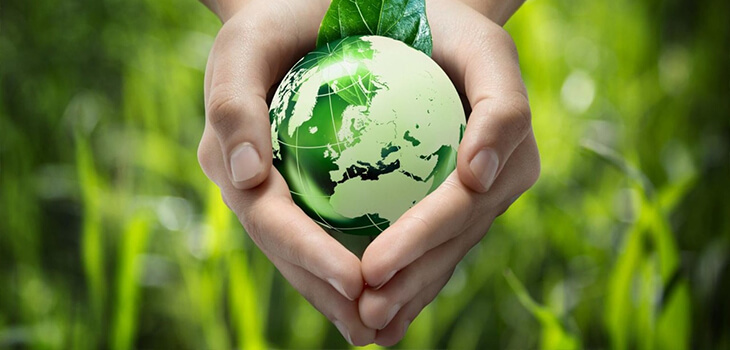
In recent decades, we can observe a rampant rise in issues related to environment all over the world. It is an undeniable truth that a bright future is never possible for humanity without respecting, protecting and preserving the environment. Environmental protection is one of the basic prerequisites for the overall development of any country in the world.
Air and water pollution, global warming, smog, acid rain, deforestation, Ozone Layer Depletion, Ocean Acidification, loss of biodiversity, Soil degradation, Increased Carbon Footprint and wildfires are the major environmental issues that the world faces today. It is everyone’s responsibility to take care of the environment to make this planet a wonderful place to live. Environment protection and leading an eco-friendly life is not a matter of spending much in terms of money but it is a matter of our attitude. Simple and inexpensive changes in daily life can contribute a lot to this noble ideal of humanity.
Maintaining the quality of the environment slows down global warming. Deforestation adds more carbon and carbon dioxide that capture and absorb heat and thus speeding up the process of global warming by making the Earth hotter. Deforestation is responsible for about 10 percent of all global warming emissions. The forest slows this process down because carbon dioxide is stored in the trees and also converts it to the oxygen. Furthermore, warm climate change and flood also increase the opportunity of spread out pests and vector diseases like malaria and dengue fever. Protection of environment not only benefits people in current generation; it will also benefit people in many generations to come. We have moral obligations toward the future generation.
For the successful survival, we need healthy food, fresh water, and animals to satisfy our nutritional needs. The decline in varieties of plants and animals has paved the way for the nutritional deficiencies. This shows the importance of conserving the biodiversity. The Earth has different species of plants, animals, and other living organisms and these together constitute biodiversity. Each species of plants and animals is important and they have been created for a reason. Hence, to maintain this diversity as it is, becomes very important. The preservation of the richness of biodiversity is a matter of great concern for the future of humanity.
Environmental protection and conservation of biodiversity are interlinked. Without trees and animals, the biological chain would collapse and cause the extinction of many species. Habitat destruction is a major cause of biodiversity loss. Deforestation, overpopulation, pollution, and global warming are the major reasons for the habitat loss. Biodiversity protection is a key factor for the better survival of different species including the human being in this world. Optimum conservation of biodiversity does mean the richness of ecosystem and improved quality of life. Our planet Earth can survive only if conservation of biodiversity is given adequate importance that it deserves. Then to protect and conserve biodiversity becomes a collective responsibility.
The coronavirus (COVID-19) pandemic underlines the need for a comprehensive and integrated approach to environmental health. Enhancing environmental health through better air quality, water and sanitation, waste management, along with efforts to safeguard biodiversity are key to battling the spread of pandemics.
India is one of the richest nations in terms of biological diversity and it is one of the 12-mega biodiversity countries of the world. Scientific studies show that thousands of species are endangered, whereas more than 300 species have already disappeared from the face of the earth. Hence, our institute gives top priority to design programmes and projects related to the conservation of biodiversity. We do understand that this is impossible without education, information, without raising awareness. Education can help people of various ages and social standing to find out about values, motivation, skills and responsibility regarding the conservation of biodiversity and protection of environment.
We observe that it is an urgent need to improve public awareness and understanding of environmental issues with a view to promoting the conservation and wise use of natural resources at the community level. Our institute takes initiative to make this awareness through following programmes: 1).Workshops/ seminars/Training Courses. 2). Public Meetings/Exhibitions/ Competitions 3). Demonstration Projects 4). Preparation of Audio Visual Materials 5). Use of Folk Media/ Street Theaters/ Festivals/ Science Fairs.
10 Pope Francis Chair For Integral Ecology (PFCIE)
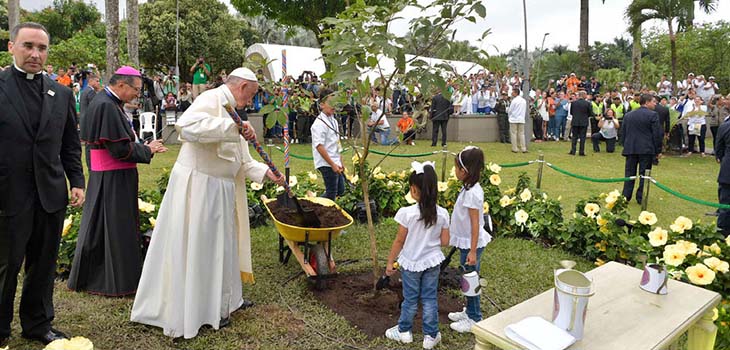
“As stewards of God’s creation, we are called to make the earth a beautiful garden for the human family. When we destroy our forests, ravage our soil and pollute our seas, we betray that noble calling.” (Pope Francis’s Speech, Manila, Philippines, January 18, 2015)
Pope Francis chair for Integral Ecology is established at Institute of Food and Agricultural Ethics (IFAE) in Kerala, India. The main objective of this chair is to disseminate the ideals and philosophy of ‘integral ecology’ of Pope Francis, which he proposes as a solution to the environmental challenges that our planet faces.
Integral ecology is a holistic perspective on reality, which seeks not only to promote human flourishing, but also the flourishing of the natural world. They suggest that human life is grounded in three fundamental and closely intertwined relationships: with God, with our neighbor and with the earth itself. “Integral ecology,” for Pope Francis means an attention to the necessary interaction and wholeness of relationships: with God, with other people, with Creation and with ourselves.
Through the encyclical Laudato Si': On Care for Our Common Home, Pope Francis urges all of us to view both the ecological and the human crises through an integral approach, as a way for us all to work together to protect the earth, our common home. Integral ecology highlights not just the interconnectedness that exists among God, humanity and creation, but also recognizes how political, economic, cultural, social and religious values and decisions are interrelated and affect the way people live with one another on the planet and use its resources.
Pope Francis calls for an integral ecology that sees the interconnectedness of environmental, economic, political, social, cultural, and ethical issues. Such an ecology requires thinking about comprehensive solutions to what is both an environmental and human crises. The ideals of ‘integral ecology’ proposed by Pope Francis is highly relevant for all of us who are concerned with making our planet healthy, just, green, and livable.
We want to engage in scholarly research and study with regard to this specific vision of Pope Francis. Our aim is to inculcate in younger generation a sensitivity to ecological issues and thus to help them to lead an eco-friendly lifestyle respecting the integrity of biosphere. For this purpose, we take the following steps:
- Organize and conduct diploma courses, international/national Seminars/ Workshops/ Lectures/Training camps on integral ecology and eco-spirituality.
- Publish books and Journals to familiarize the ideals of ‘integral ecology’ of Pope Francis to the succeeding generation.
- Promote the ideals of Pope Francis on ‘integral ecology’ in contemporary society and to ignite and motivate younger generation to uphold those values.
- Foster interreligious dialogue and harmony in questions regarding environmental problems. The dialogue promoted in this regard helps us to open our hearts by listening together to each, thinking together, and talking together for the cause of our planet.
- Take initiatives to encourage and promote lifestyles conducive to Eco-spirituality based on the ideals of ‘integral ecology’ of Pope Francis.
- Take initiative to empower citizens and institutions to adopt lifestyles and make choices under the banner of safeguarding creation, and to promote sustainable development and a deep commitment against climate change.
11 Agri-Eco Info Park Pvt Ltd (AEIP)
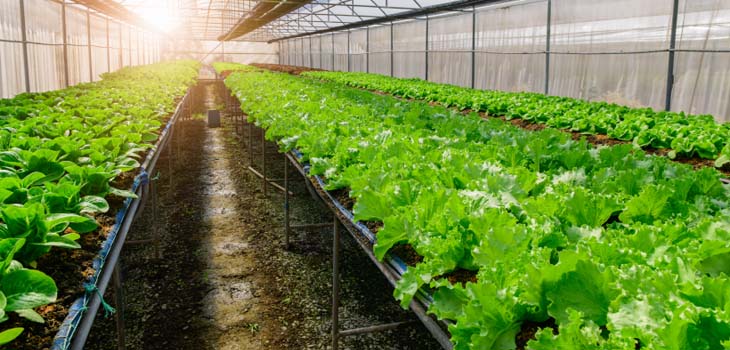
AGRI-ECO INFO PARK Pvt Ltd (AEIP) is a private limited company registered (Register No. U01100KL2020PTC066522) under the companies Act 2013(18 of 2013) of India. This private limited company is an initiative of the Institute of Food and Agricultural Ethics (IFAE) in order to provide commercially healthy and nutritious food free from toxins and chemicals to the citizens and thus to form a healthy generation.
Agriculture is the primary source of livelihood for about 58% of India’s population. Often Indian farmers are in economic distress due to the price decline happens in the field of agricultural products. As a result, farmers cannot to lead a decent and dignified life in the society.
Time has come when agriculture has to be run as an agribusiness rather than subsistence agriculture. Value-added agriculture generally focuses on production or manufacturing processes, marketing or services that increase the value of primary agricultural commodities. World markets, especially Indian Markets are undergoing tremendous transformations. To boost economic returns from farming, we must find ways for farmers to earn a greater share of the product sale revenue after adding value to their own produce. The aim of our company is to increase the farmer’s earning through efficient and effective value addition.
We should note that the value addition to raw food material in India is only 7 per cent while it is 23, 45 and188 percent in China, Philippines and UK, respectively (as per National Food Processing Policy, Draft Document, 2000). Adding value to India’s horticultural produce is a need of the hour as not only will enhance profit margins and agri exports of the country, but it will also be a right step in the direction of enhancing farmers’ income. Our company wants to collaborate with the Central/State governments in their efforts to enhance the earning of farmers through the projects of value addition in agricultural commodities.
- 01. Postgraduate Diploma in Nutritional Counselling & Diet Therapy(PDNCDT) (One-year course)
- 02. Food Literacy and Nutritional Counselling in Schools, Colleges, and Other Educational Institutions
- 03. Biodiversity Info Park
- 04. Public awareness campaigns on Food Adulteration to Fishermen, Farmers and Merchants, proprietors and employees of Hotel and restaurants
- 05. A Digital Platform for Farmers
- 06. National Conference on ‘Integral Ecology’ under the auspices of ‘Pope Francis’ Chair for Integral Ecology’.
- 07. Kisan Line : a Candle of Hope for Farmers in India
- 08. Community based Zero Waste initiative
- 09. Awareness campaigns for environmental protection and conservation of biodiversity
- 10. Pope Francis Chair For Integral Ecology (PFCIE)
- 11. Agri-Eco Info Park Pvt Ltd (AEIP)
